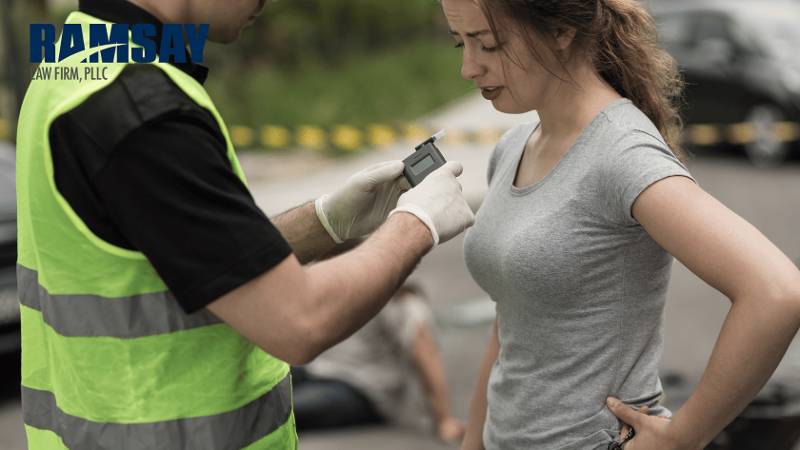The State's Roadside Breath Machines Are Wildly Inaccurate

There’s a massive problem with the state’s roadside breath machines, also known as preliminary breath testers (PBTs): They’re not calibrated by scientists.
When you get pulled over under suspicion of DWI, the state will try to use a small handheld device to test your breath. The problem is these devices aren’t very reliable or accurate.
Non-scientists calibrate the devices. And the officer administering the test has had little training in the science behind the device. If the device isn’t properly calibrated, the results can be wildly inaccurate.
When calibrating the device, the officer is supposed to test it against a known reference sample of alcohol. But there are different types of dry gas. One type is made for infrared breath devices, and the other is made for PBTs, which use a fuel cell.
Often, the officer confuses the two types of gas and uses the wrong one to calibrate the device. And if the device is mis-calibrated, the results will be inaccurate.
But that’s not the only problem with these roadside tests.
THE PROBLEM OF FALSE POSITIVES
Another problem with the roadside PBT test is that they often give out false positive results.
Breath tests are extremely sensitive to any food or drink containing minute amounts of alcohol. Even foods like bread, gum, and mints contain tiny amounts of alcohol. If you’ve just eaten or drank something while driving your car, it can give a false positive result on your test.
A ketogenic diet can also give false positive results. In one case study, a man who had never drunk alcohol in his life got a positive result on one of these types of devices.
Your body produces isopropanol when you fast, exercise, or reduce carbs. The device falsely recognizes this as ethanol (the alcohol you drink) and gives a false-positive result.
Finally, the National Highway Traffic Safety Administration (NHTSA) requires officers to make sure the driver has not consumed any alcohol or put anything in their mouth for at least 15 to 20 minutes before conducting the PBT prior to testing. We have found that officers rarely abide by this requirement. Fortunately, we know how to fight the admission of this test.
WHAT CAN YOU DO?
It’s important to know that you MAY refuse roadside breath testing (but not the official test at the police station). Be polite, but don’t offer up any additional information to the officer or perform other pseudoscientific tests, such as the roadside walk-and-turn, the one-leg stand, or the HGN test, where you’re supposed to follow the officer's pen/finger with your eyes.
If you end up getting accused of a DWI, reach out to Ramsay Law.
We are Minnesota’s only Board Certified DWI Defense Lawyer Specialist (as recognized by the American Bar Association, not MSBA).
Call us to discuss your case. Contact Ramsay Law at 651-604-0000.
P.S. - Stay up to date by subscribing to our blog, where we explore the intersection of law and science around DWI cases.

